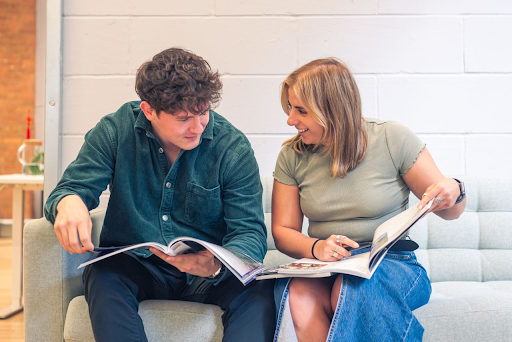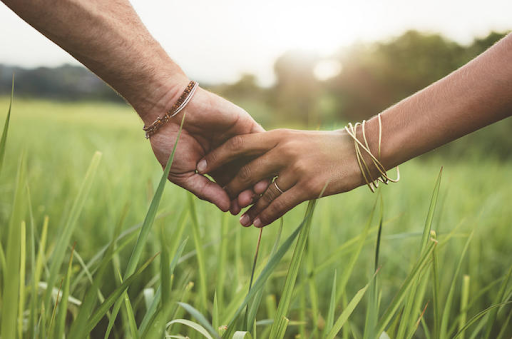Introduction
Creativity is often celebrated as a trait reserved for artists, writers, and musicians, but its significance extends far beyond the realm of traditional artistic expression. At its core, creativity is a powerful force that drives personal growth and transformation. Whether you’re crafting a masterpiece, problem-solving in your professional life, or navigating the complexities of relationships, creativity plays a pivotal role in expanding your potential and enhancing your well-being.

Understanding Creativity
Creativity is not confined to a specific domain; it is a universal trait that manifests in various forms. At its essence, creativity is the ability to think outside the box, to see connections that others might overlook, and to generate novel solutions to problems. It involves imagination, originality, and the willingness to take risks. But creativity isn’t just about coming up with new ideas—it’s about embracing a mindset that fosters innovation and growth.
The Impact of Creativity on Personal Growth
1.Fostering Self-Discovery
Engaging in creative activities can be a profound journey of self-discovery. When you immerse yourself in a creative endeavor, you often find yourself exploring new aspects of your personality and interests. Whether it’s painting, writing, or experimenting with new hobbies, creative expression allows you to tap into your inner self, revealing insights about your values, passions, and strengths.
For instance, journaling can be a therapeutic creative outlet that helps you process emotions and gain clarity about your goals. The act of putting pen to paper can uncover hidden thoughts and desires, leading to a deeper understanding of yourself and your aspirations.
2.Enhancing Problem-Solving Skills
Creativity is intrinsically linked to problem-solving. When faced with challenges, a creative approach can lead to innovative solutions that might not be immediately apparent through conventional thinking. This ability to approach problems from multiple angles is a valuable skill in both personal and professional contexts.
Think about how creative problem-solving works in everyday life. Perhaps you encounter a logistical issue while planning a trip, and instead of sticking to a rigid itinerary, you adapt and find a new route that enhances your experience. This flexibility not only resolves the problem but also enriches your journey.
3.Building Resilience
Creativity fosters resilience by encouraging a mindset that embraces change and uncertainty. When you engage in creative pursuits, you learn to navigate the unpredictable nature of the creative process. This experience translates to other areas of life, helping you handle setbacks with greater ease and adaptability.
Consider an artist who faces criticism or struggles with a project. Instead of giving up, they use these challenges as opportunities for growth, learning to refine their craft and persevere through difficulties. Similarly, developing resilience through creativity can help you tackle life’s challenges with confidence and determination.

4.Promoting emotional well-being
Creative expression is closely linked to emotional well-being. Engaging in activities that you find fulfilling and enjoyable can have a positive impact on your mental health. Creativity provides an outlet for expressing emotions that might be difficult to articulate otherwise, offering a therapeutic release.
Art therapy, for example, is a recognized approach that uses creative activities to improve mental health. Through painting, drawing, or sculpting, individuals can process and communicate complex emotions, leading to greater emotional balance and healing.

5.Enhancing cognitive abilities
The act of creating stimulates cognitive functions and promotes mental agility. When you engage in creative activities, your brain is actively involved in problem-solving, planning, and executing tasks. This mental exercise strengthens neural connections and can lead to improved cognitive function.
Research has shown that engaging in creative activities can enhance cognitive abilities such as memory, attention, and executive functioning. For example, learning to play a musical instrument involves complex cognitive processes, including pattern recognition and auditory processing, which contribute to overall cognitive development.
Practical Ways to Cultivate Creativity
1.Embrace Curiosity
Cultivating creativity begins with embracing curiosity. Allow yourself to explore new interests, ask questions, and seek out new experiences. Curiosity fuels creativity by encouraging you to venture beyond your comfort zone and discover new perspectives.
2.Establish a Routine
Incorporate creative practices into your daily routine. Whether it’s setting aside time for writing, drawing, or brainstorming, consistency can help you develop and sustain your creative skills. Creating a designated space for creativity can also provide an environment conducive to inspiration.
3.Experiment with Different Mediums
Don’t limit yourself to one form of creative expression. Experiment with different mediums and techniques to discover what resonates with you. Whether it’s painting, cooking, or coding, exploring diverse creative outlets can expand your skills and open new avenues for personal growth.

4.Collaborate and Share
Collaborating with others can enhance your creativity and broaden your perspectives. Engaging with a community of like-minded individuals or seeking feedback from others can provide valuable insights and inspire new ideas. Sharing your creative work also allows you to connect with others and gain support and encouragement.
5.Practice mindfulness.
Mindfulness practices, such as meditation or journaling, can enhance creativity by promoting focus and reducing mental clutter. By cultivating a mindful approach, you can create a mental space that fosters creative thinking and problem-solving.
Conclusion
Creativity is far more than just a trait of artists and innovators; it is a fundamental aspect of personal growth and development. By fostering creativity, you unlock new avenues for self-discovery, problem-solving, resilience, and emotional well-being. Embracing creativity allows you to explore your potential, adapt to challenges, and enhance your overall quality of life.
As you embark on your journey of personal growth, remember that creativity is a dynamic and evolving force. Whether you’re pursuing artistic endeavors or applying creative thinking to everyday challenges, nurturing your creative spirit can lead to profound and transformative experiences. So, embrace your creativity, and let it guide you toward a richer, more fulfilling life.
